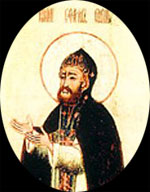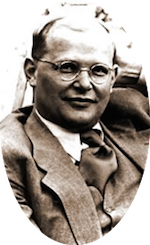The Desire of Nations
by David Bentley Hart (First Things). «Some Christians, it is my experience, become terribly anxious when confronted by the similarities between the language of Christianity in the early centuries and that of many of the pagan devotions of late antiquity (just as certain of Christianity’s cultured despisers rejoice in them). And, of course, some of the more primitivist strains of Protestantism have historically take these similarities as proof of something corrupt and even perhaps diabolical in the Catholic forms of Christian belief and observance. Whatever the case, it is simply a fact that neither in the intensity of its piety, nor in the spiritual longings it answered, nor even in its liturgical and sacramental conventions, did Christianity bring something entirely novel into the world. As early as the late first century, Christianity was in very many places—morphologically, but also in its dogma—a ‹mystery religion› of a sort known throughout the empire, offering salvation through sacramental initiation into a corporate association and sacramental devotion to a savior deity. And it would be pointless to deny that, say, the iconography of Isis and Osiris might conceivably have influenced later Christian iconography of Mary and Christ, or that something of the ancient reverence for the Magna Mater deorum lived on in Christian veneration of the Mater Dei—radically transformed perhaps, redeemed if one likes, flowering into a new kind of devotional beauty, but springing up from the same roots of spiritual longing and imagination.»
Calculating Christmas: The Story Behind December 25
by William J. Tighe (Touchstone). It's that time of year again... «Many Christians think that Christians celebrate Christ’s birth on December 25th because the church fathers appropriated the date of a pagan festival. Almost no one minds, except for a few groups on the fringes of American Evangelicalism, who seem to think that this makes Christmas itself a pagan festival. But it is perhaps interesting to know that the choice of December 25th is the result of attempts among the earliest Christians to figure out the date of Jesus’ birth based on calendrical calculations that had nothing to do with pagan festivals. Rather, the pagan festival of the ‹Birth of the Unconquered Sun› instituted by the Roman Emperor Aurelian on 25 December 274, was almost certainly an attempt to create a pagan alternative to a date that was already of some significance to Roman Christians. Thus the ‹pagan origins of Christmas› is a myth without historical substance.»
On Shooting Abortionists
by Mark Shea (Catholic and Enjoying It). «We know in our bones–if we are not crazy–that murdering abortionists is not the way to demonstrate an authentically prolife position. And so we recognize the sanity of saying, as our very first response to such killings, ‹All truly prolife people denounce this wanton act of cold-blooded murder, re-affirm the right to life for *all* human beings, pray for the victims, demand swift judgement for the shooter, and offer ourselves in service to all those suffering from this crime.› But then the questions crowd in.»
Is Robert Dear Another John Brown?
by Jamelle Bouie (Slate). «Speaking to BuzzFeed News, Eric Scheidler of the Pro-Life Action League voiced his dismay with accusations of blame. ‹It’s extremely frustrating, and I don’t see anything we could possibly do,› he said. ‹Like anyone, he’s going to pick up on the news of the day but what he does with the news is beyond our control. I don’t know how we’re going to fight abortion without talking about it.› He continued: ‹Should William Lloyd Garrison have kept quiet about slavery because of madmen like John Brown?› That’s a big question. And an important one. Even if it’s an idle comment, by raising the specter of John Brown, Scheidler sheds light on the key tension in this discussion, which goes beyond — but is tied to — the question of rhetoric.»
Orthodox Rabbinic Statement on Christianity — To Do the Will of Our Father in Heaven: Toward a Partnership between Jews and Christians
by The Center for Jewish-Christian Understanding and Cooperation. «After nearly two millennia of mutual hostility and alienation, we Orthodox Rabbis who lead communities, institutions and seminaries in Israel, the United States and Europe recognize the historic opportunity now before us. We seek to do the will of our Father in Heaven by accepting the hand offered to us by our Christian brothers and sisters. Jews and Christians must work together as partners to address the moral challenges of our era.»
Subscribe to:
Post Comments (Atom)


















No comments:
Post a Comment